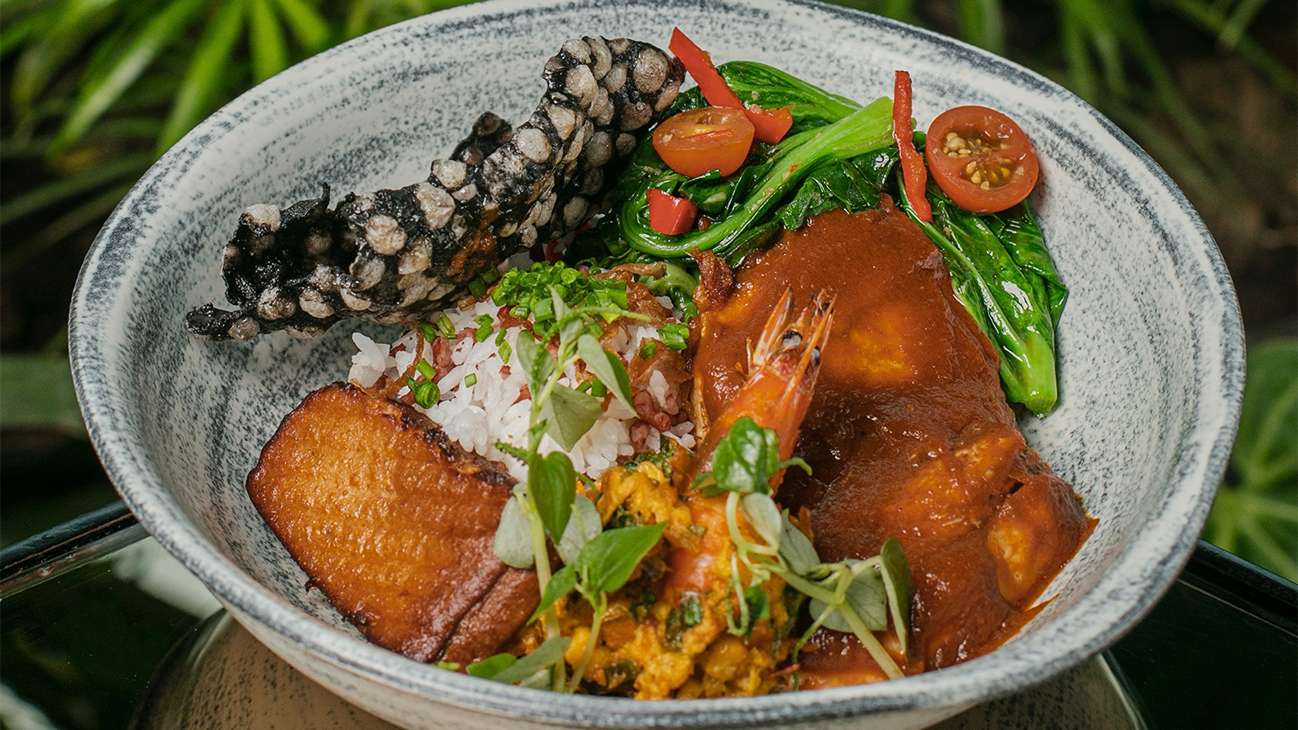Knowing some basic words and phrases of a local language can help greatly when travelling somewhere new. Not only does it make it easier to get around and communicate, it also allows you to connect with the locals. You don’t have to be fluent, but a little bit of linguistic knowledge goes a long way!
In Bali, most locals can speak English, especially those in the service industry. However, this is actually their third language. Their second language is the national language Bahasa Indonesia, and their first is Balinese, the local dialect.
Communicating with the Balinese in their own language builds an instant connection and will open more genuine conversations during your travels. To help you make the most of your time in Bali, here are essential Balinese phrases you should know.
Basic Balinese words and greetings
Starting a conversation is easy with a simple hello. You can use these words and phrases when approaching a Bali local.
Om Swastyastu
This Balinese phrase is the standard “hello.” Being Sanskrit, Om Swastyastu is more than a mere greeting, but a blessing or well wishes for the other person. It’s usually uttered with a smile and slight nod. In more formal occasions, some would also put their hands together in a prayer.
Rahajeng semeng, rahajeng tengai, and rahajeng peteng
While not frequently uttered in day-to-day conversation, these phrases are also a polite way to start a conversation.
Rahajeng semeng means good morning, rahajeng tengai means good afternoon, and rahajeng peteng means good evening.
Matur suksma
A “thank you” in Balinese is matur suksma or simply suksma. In response to this, you can say mewali to mean “you’re welcome.”
Nggih and sing
Bali’s proximity to Java means the languages in these two provinces borrow from each other.
Nggih and sing are both Balinese and Javanese for yes and no.
Ampura
Ampura is used to apologise or say “excuse me.”
Balinese words to address locals
You’ll come across many locals in Bali, whether at hotels, restaurants, or even on the beach. When conversing, use these respectful words to address them.
- Bli: brother, referring to younger men
- Bapak / Pak: mister or sir, referring to older men
- Gek: sister, referring to younger women
- Ibu / Bu: ma’am, referring to older women
Balinese phrases to start a conversation
In addition to the above Balinese vocabulary, the following words are also useful for starting a conversation, especially with someone you’ve just met.
The Balinese language can be divided based on degrees of formality and politeness, so choose your words depending on who you are talking to and the situational context of the conversation.
| Balinese | ||
| English | Formal | Casual |
| I | Tiang | Cang |
| You | Ragane | Ci |
| My name is… | Adan tiang | Adan cang |
| What’s your name? | Nyen adan ragane? | Nyen adan ci? |
| How are you? | Punapi gatra? | Ken-ken kabare? |
| I’m fine | Tiang becik-becik | Cak becik-becik |
Survival phrases for making your way around Bali
Want to go beyond a short conversation? You can use the following Balinese phrases when travelling around the island to help you find places you need and easily make purchases.
Ngidang ngalih
Use this at restaurants, warungs, and stores when ordering food or buying goods. This phrase means “Can I have…”
For example, ngidang ngalih nasi campur, means “Can I have nasi campur?”
Wenten toilet?
You’ll never know when nature calls, so this phrase is useful to know if you find yourself needing the toilet somewhere unfamiliar! It simply means, “Where is the toilet?”
Kenken carane tiang neked ka…?
Lost your way? Come up to a local and ask them this, completing the sentence with the place you’re looking for.
To ask how to get to Tanah Lot, for instance, you can ask, Kenken carane tiang neked ka Tanah Lot?
Kude nike?
When shopping, especially at local markets and vendors, always ask for the price of something before paying. To do this, simply ask, kude nike? Which means “How much is it?”
Equipped with these Balinese phrases, you’re sure to travel more easily around the island. You can use your newly-honed vocabulary to order food at restaurants, including at Merah Putih. Book a table with gift vouchers to secure your spot today!
FAQ
In Balinese, matur suksma, or more casually, just suksma means thank you.
To say thank you, the Balinese will say matur suksma or just suksma. In response, you can say mewali which means “you’re welcome.”
It’s customary for the Balinese to name their children based on their birth order. Somebody with the name Ketut is always the fourth-born child of the family.
In Balinese, rahajeng means “safe” or “prosperous” and is used as a common greeting. When combined with other words, its context becomes congratulatory.



